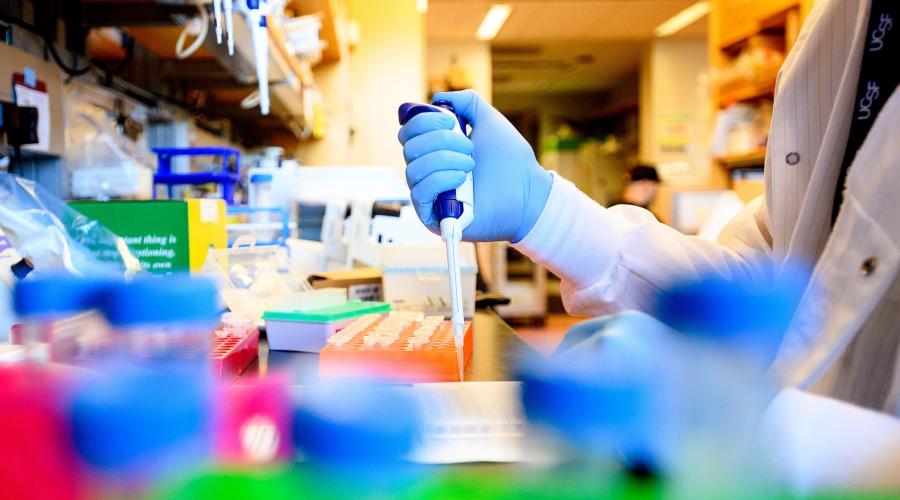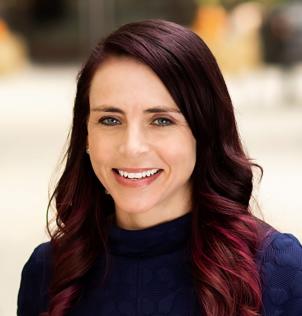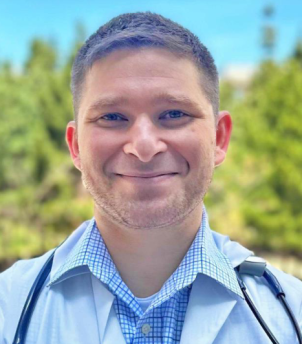
5 UCSF Researchers Changing the Future of Pediatric Critical Care
Every day in the intensive care units at UCSF, the Division of Pediatric Critical Care team handles some of the most daunting challenges in children's health. Our approach combines the latest advances in care with a deep commitment to research that seeks new ways to help infants and children survive through difficulties and recover back to their full selves.
Here, we spotlight five critical care specialists whose research exemplifies this drive to turn scientific discovery into better outcomes for children at their most vulnerable. Staying close to the children they care for, their work ranges from uncovering basic mechanisms of development and disease to addressing obstacles to effective global health interventions—all to create a better future for children facing life-threatening conditions.

Protecting the Developing Brain: Tom Arnold, MD
The recent discovery of a key pathway for brain nourishment reveals a potential cause for conditions like congenital hydrocephalus, a buildup of excess fluid in the brain at birth that can cause lasting cognitive and motor impairments. Details of this pathway reveal new strategies to encourage brain development and offer a potential route to deliver therapeutic drugs to the brain, which could revolutionize how we treat neurodegenerative conditions like Alzheimer’s.
Understanding the roots of devastating neurological conditions requires decoding early brain development. Tom Arnold, MD, focuses on the critical role of the blood-brain barrier as the brain’s protective gatekeeper.

Decoding Lung Growth and Repair: Cristina Alvira, MD
Vulnerable lungs are a major reason why many infants and children require critical care, often stemming from developmental issues after premature birth or impaired healing after respiratory infections. Cristina Alvira, MD, a leading researcher who recently joined the UCSF Department of Pediatrics, investigates how lungs mature after birth and repair themselves when damaged.
Her research focuses on blood vessel development and alveolarization, the final stage of lung development that primarily occurs after birth. Disruptions in alveolarization cause bronchopulmonary dysplasia, a chronic lung disease that preterm newborns face more than any other complication. Dr. Alvira’s research aims to create new therapeutic strategies based on these findings that support lung development in newborns and promote better recovery for children struggling to breathe.
Shielding Children in Recovery: Matt Zinter, MD

Recovery after life-saving stem cell transplantation (HCT) can be perilous, with nearly half of children developing potentially deadly lung infections as their immune systems rebuild. Matt Zinter, MD, confronts these challenges daily as director for Pediatric Immunocompromised Critical Care at UCSF Benioff Children's Hospitals and has dedicated himself to finding ways to protect these children’s lungs during this vulnerable period.
His recent landmark study used advanced sequencing to analyze the lung microbiome from hundreds of pediatric bone marrow transplant patients, finding that these microbial signatures strongly predict survival. The healthiest children had a balanced microbiome—neither depleted overall nor overgrown with harmful bacteria, fungi, or viruses. “It’s like the Goldilocks analogy where the middle ground is just right,” said Dr. Zinter.
The goal now is to translate this understanding to predict risk and guide more targeted treatments for these infections, ultimately making stem cell transplantation safer and more accessible as a treatment for many life-threatening pediatric diseases.
Measuring Global Critical Illness: Teresa Kortz, MD, MS, PhD

To effectively improve care for critically ill children globally, we first need to understand the true scope of the problem, especially in resource-constrained settings. Teresa Kortz, MD, MS, PhD recently led a major international study called Global PARITY to address this critical knowledge gap.
Spanning 46 hospitals across 19 countries, the ambitious project revealed a stark reality: pediatric acute critical illness is alarmingly common, affecting roughly 1 in 8 children seeking care in these regions. This high prevalence is coupled with high mortality, often within the first 48 hours, even though many of these life-threatening conditions could potentially be managed with basic critical care services.
By quantifying the burden and identifying common causes like pneumonia and sepsis, Dr. Kortz's work underscores the urgent need to strengthen essential critical care infrastructure—from trained staff and reliable equipment to coordinated systems—to save children’s lives worldwide.
Unraveling Immune Mysteries: Aaron Bodansky, MD

While caring for children battling the new and mysterious multisystem inflammatory syndrome in children (MIS-C) at UCSF early in the COVID-19 pandemic, Aaron Bodansky, MD, observed its resemblance to other rare pediatric inflammatory diseases.
His collaborative research uncovered a key mechanism: the immune system mistakenly attacks a human protein that closely resembles part of the SARS-CoV-2 virus, causing widespread inflammation. This discovery points toward new ways to investigate and treat complex autoimmune diseases.
Dr. Bodansky conducted this research during his UCSF fellowship, earning him the Department's 2024 Grumbach Award for research excellence from a fellow. His recent transition to faculty exemplifies the Division's commitment to nurturing physician-scientists who solve bedside puzzles to improve care for critically ill children.
Support the UCSF Department of Pediatrics to drive advances in critical care so that every child has hope for a healthy future.
